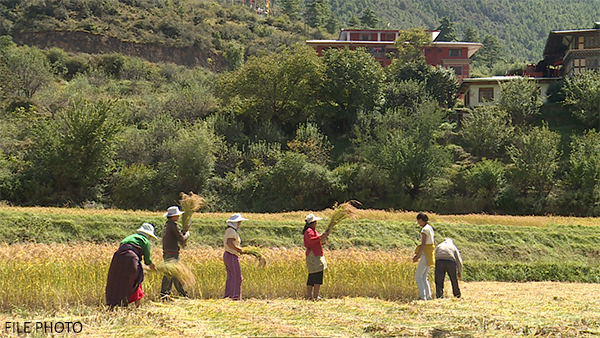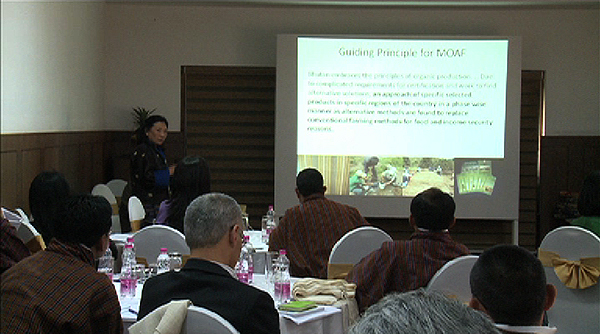 Bhutan’s vision to go 100 percent organic by 2020 is not looking very realistic. There’s still a long way to go to reach this goal set by the Ministry of Agriculture and Forests. Policy makers met in Thimphu to plot a road map for the way ahead.
Bhutan’s vision to go 100 percent organic by 2020 is not looking very realistic. There’s still a long way to go to reach this goal set by the Ministry of Agriculture and Forests. Policy makers met in Thimphu to plot a road map for the way ahead.
The National Organic Programme, established by the Ministry of Agriculture and Forests, held a two-day workshop to assess the viability, opportunities and challenges of organic farming in the country.

“All sectors need to think about how they can participate in these organic development goals,” said Yeshey Dorji, the minister of Agriculture and Forests, adding that organic farming practices have not yielded promising results so far.
For example, in all of Bhutan, only three retailers are involved in organically grown farm produce.
“It is time to set achievable targets, ensure required resources and assign accountable responsibility to the sectors and have a monitoring system that ensures committed targets are achieved.”
The National Organic Programme (NOP) was established in 2007 to implement Bhutan’s goal to go all organic. But in 10 years, very little has happened on the ground, largely because of a lack of funds.
“We feel if the financial resources are allotted, many things can happen,” said NOP coordinator Kesang Tshomo. Despite the mandate, she added, limited resources pose an obstacle to the implementation of the programme’s plans.
She said raising awareness among farmers about the benefits of going organic is important. But there’s a problem: to ensure food sufficiency, the ministry is still supplying farmers with chemical fertilisers and pesticides throughout the country.
In short, developing organic alternatives in Bhutan will be a long process.







